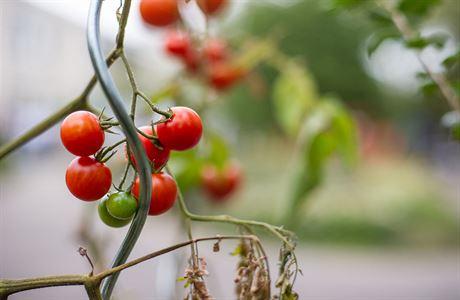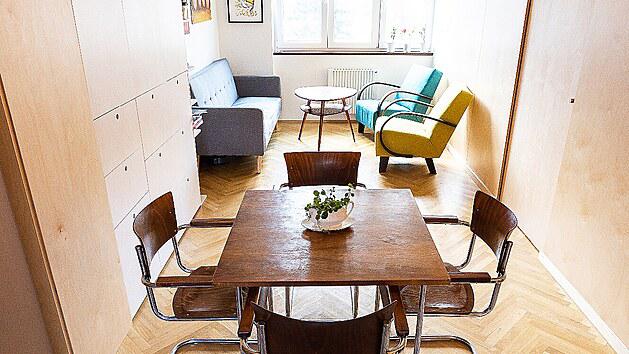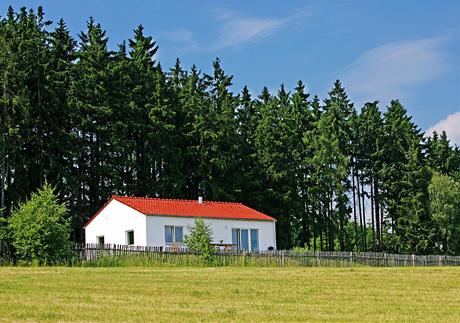
10 tips on how to establish a community garden in the city. What to follow when choosing a place and why invite neighbors?
Magazine
May 6, 20205: 00, updated 6:13 Once you wake up and find that the time to establish a city or community garden or at least a neighborhood flowerbed has just matured, because the balcony is really small for you and meeting your neighbors makes you happy. You think about how and what to think about so that the first enthusiasm does not dissipate like a morning mist over the community garden. Enlarge photoHerbal photo: Kokoza
We have put together experiences from different gardens and flower beds so that you can not only think, but also start and fine-tune the details with the greatest possible joy. For simplicity, everything is first summarized in the starting ten, where you can look for quick inspiration every day.
Find a space
It sounds banal, but finding the right space for a garden in the city can be a challenge. There are quite a few possibilities, but some places have certain pitfalls. Look for a space that is easily accessible, with a source of water and possibly other energies that may be useful. Size does not matter, but think about the location of the land in relation to the sides of the world and its shading. Last but not least, look for a friendly owner who will be a partner for you.
Take a look around, the place should be within easy reach, ideally 10 minutes from all gardeners, so that you have time to meet there as often as possible. The space should be easily accessible, ideally fenced. But even unfenced land can work great if you look at it directly from the window. Think of the aforementioned location in relation to the world's sides and shadows. If you want to grow a lot of tomatoes and zucchini, you definitely need to have a sunny part, the salads are a bit shady. The source of water (long live the rain!) And possibly other energies, if you need them, is important.
Find people
It won't be possible in the garden without partners. In the long run, it turns out that the biggest "holders" are people who live, what you would throw a cucumber… Without initial enthusiasm and desire, of course, it is not possible, but you can do everything yourself only at the beginning and even so, a symbiosis of more people is better.

Garden founders can tell about it. Look around, try to decide questionnaires, ask on social networks or contact Kokozu. It will be best if the garden starts to be created together, people then have a greater desire to go to the garden because it is "theirs". Having a healthy core with at least 3 partners is a great start, but definitely try to involve other people from the beginning, so that you can cultivate the garden as soon as possible to everyone's delight. It's just two (in this case at least three) it's better!
Work together
Gardens are growing fast and it is refreshing to meet other city gardeners. You will always find at least one common topic. We believe in synergistic cooperation and that even with companies or officials you can look for opportunities for cooperation and mutual support. First of all, you need to have a taste. Volunteers from nearby companies can help with the reclamation of the place and in return, for example, they grow herbs in the flower bed.
YOU CAN READ MORE ABOUT GARDENING AND GROWING IN THE NEW SERIES |
Invite the neighbors
Growing in urban and community gardens is a means of meeting, and therefore includes various neighborhood and social events. In recent years, they have grown like mushrooms after rain. Invite your neighbors to the International Neighbors' Day, Restaurant Day, the Experience the City Differently festival, the Earth Days celebrations, Mezidvorky, Nuselské dvorky, Kladenské dvorky or just like that ... There is an opportunity every day. For example, you can celebrate the harvest, cook or bake something for your neighbors, watch a movie, show works of art, listen to poetry or organize a Children's Day.
There is no garden without compost
Did you know that up to about 40% of your household waste is biowaste? So don't forget the composter. Without quality compost, the soil is not complete and your crop and, in the long run, the whole planet will pay for it. There is plenty of material for the composter in the garden, but you can also add organic material from the households of gardeners and people from around the garden. And especially in times of drought, you will appreciate quality soil with a sufficient proportion of humus.
Once you start growing, you will find that not a peel is left in vain. In city gardens, there is often bad soil, which you have to recultivate for growing - either you will grow in raised flower beds or directly in the soil, but in any case, compost is good for you. And more and more people in the cities are asking where they can put organic waste from their homes, and this is an ideal opportunity to attract more neighbors.
One tomato is not a failure
Growing in the city brings active leisure and part of the harvest are mainly experiences, relationships and new adventures. The first harvest counting pieces or grams definitely counts. Anyone who has tasted tomatoes and herbs from their own garden, balcony, terrace or flower bed in the community garden will certainly agree. And you know, with food, the appetite grows. Most city gardeners do not expect a large harvest, only a few community gardens aim for true self-sufficiency (such as the Kitchen or KomPot). The most important thing is to meet and get advice from a more experienced neighbor.
Educate yourself
The season is in full swing, the other gardeners are great and you have tested the beer in the member bistro many times, but so far only watercress has sprouted in your flowerbed and the material for the production of the composter has been waiting in the cellar for two months? Many gardens organize various workshops and courses, find time and set out to learn something new. You can share your experience, but most importantly avoid the mistakes that every beginner may encounter.
The first step to self-sufficiency
Growing your own food in the city is possible, we experience it first hand. However, in most cases, the community garden is not a reliable source of fruit and vegetables that would feed the family all year round. Set up a community-supported farming group (KPZ) with other growers and a related farmer will supply the vegetables. You can join already functioning groups, which you can find at mapko.cz. If you are not so brave to embark on KPZ, you can also try Scuk.
Count it
Enthusiasm is important in the beginning, but you need to pay for your first investment, land or equipment. Even those who have responsibility for the project should be rewarded for their work. Membership fees, sponsorships, municipal and state grants and subsidies or own business. These are different ways to put a garden back on its feet. It depends on the purpose for which you establish the garden. The second season will be a challenge. By involving clever neighbors, you can save on equipment items such as flower beds or facilities.
The book We Grow in the City will guide you through the theory and practice of establishing neighborhood flower beds or even entire community gardens. |
Inspire others
Do you grow and compost in the city? Write about it. Talk about it out loud. Hold an event in the garden. This is also a way to attract more people and expand the number of gardens, the volume of local vegetables, the number of neighborhood meetings or the volume of bio-waste from the city that does not end up in landfills. And the more of us there are, the better the gardens will grow.
Author: Radka Pokorná, We grow in the city Topics: Garden and cultivation, garden, gardener, soilHome office in the garden. How to create an office between bushes and trees?
What to do with children when it is beautiful outside? Teach them to garden
Grateful and unpretentious. How to grow peas and take good care of it?
Juicy tomatoes in the garden. When do you start betting on them and how do you take care of them?
Self-sufficient in the city. We will advise you on what vegetables to start with, how to prepare a box and why to plant Africans
Grow your own sweet carrot. We will advise you on what is most important to do
What about the cake? Advice and tips from a renowned pastry chef for a universal filling
Omicron tsunami in Spain. Veils are also worn outside and the tests were something like a 'countertop'
Hated Rowling to death. How an adored writer became a 'class enemy'
Premium'Jonah has risen from the grave and everyone is talking about it!' The success of the 1990s is a complete sensation, says actor Bartoš
PremiumHalf doll and half doll. The clash over gender-neutral toilets has already reached the Czech Republic
PremiumA fucking covid is like a booster. The immunologist explains the principle on which the new vaccines work
Premium{TITLE ad title over two lines}
Doll's jacket. Jan Punčochář will advise on pork in a garlic crust
RecipeWomen catch up on drinking men. How has the pandemic deepened addictions and what additional risks has it brought?
PremiumI can't forbid people from running. I run alone, it helps me, says orthopedist Váchal
Premium Trouble with sore joints are so serious that doctors have to perform 35,000 operations every year, when patients receive ...
Doctors for sale. Desperate hospitals offer hundreds of thousands per head
Premium The clueless staffing situation in hospitals forces the director to use the services of so-called headhunters. You are for ...
Ninety in criminal cars. What models did Jonák and the other mobsters ride in?
Premium Mercedes, BMW, or perhaps favorites? In fact, what did the thugs most often ride in the 1990s, which visibly increased? ...
Other Premium offersCreate a professional resume quickly and easily!
Another 61 872 vacanciesCommercial message







